Subham Nagar
Orthogonal Features Based EEG Signals Denoising Using Fractional and Compressed One-Dimensional CNN AutoEncoder
Apr 16, 2021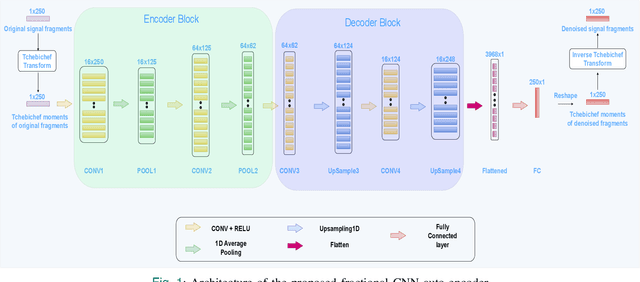


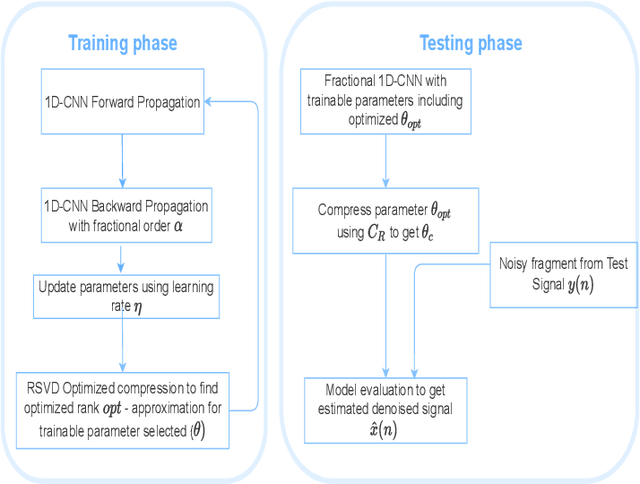
Abstract:This paper presents a fractional one-dimensional convolutional neural network (CNN) autoencoder for denoising the Electroencephalogram (EEG) signals which often get contaminated with noise during the recording process, mostly due to muscle artifacts (MA), introduced by the movement of muscles. The existing EEG denoising methods make use of decomposition, thresholding and filtering techniques. In the proposed approach, EEG signals are first transformed to orthogonal domain using Tchebichef moments before feeding to the proposed architecture. A new hyper-parameter ($\alpha$) is introduced which refers to the fractional order with respect to which gradients are calculated during back-propagation. It is observed that by tuning $\alpha$, the quality of the restored signal improves significantly. Motivated by the high usage of portable low energy devices which make use of compressed deep learning architectures, the trainable parameters of the proposed architecture are compressed using randomized singular value decomposition (RSVD) algorithm. The experiments are performed on the standard EEG datasets, namely, Mendeley and Bonn. The study shows that the proposed fractional and compressed architecture performs better than existing state-of-the-art signal denoising methods.
Orthogonal Features-based EEG Signal Denoising using Fractionally Compressed AutoEncoder
Feb 16, 2021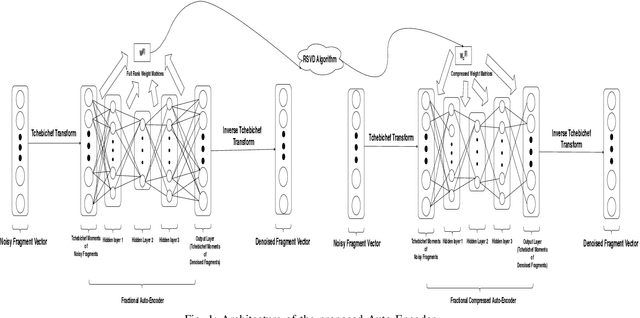
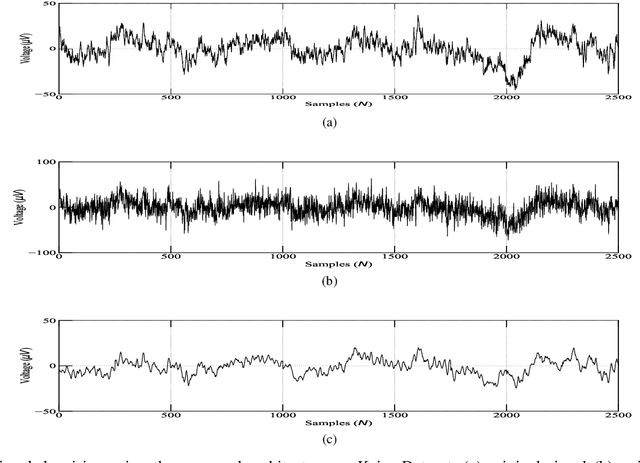
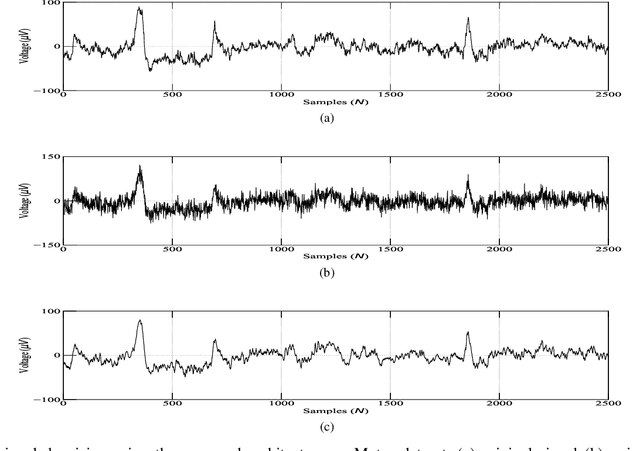
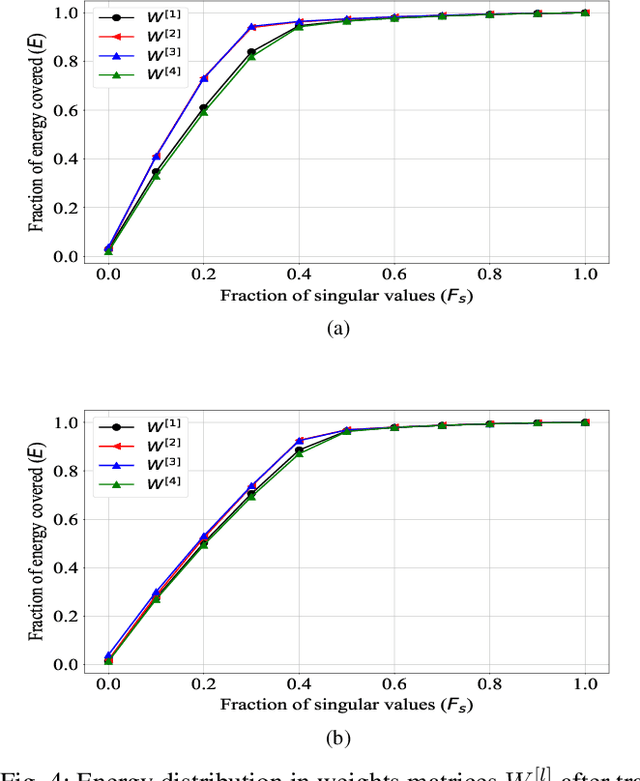
Abstract:A fractional-based compressed auto-encoder architecture has been introduced to solve the problem of denoising electroencephalogram (EEG) signals. The architecture makes use of fractional calculus to calculate the gradients during the backpropagation process, as a result of which a new hyper-parameter in the form of fractional order ($\alpha$) has been introduced which can be tuned to get the best denoising performance. Additionally, to avoid substantial use of memory resources, the model makes use of orthogonal features in the form of Tchebichef moments as input. The orthogonal features have been used in achieving compression at the input stage. Considering the growing use of low energy devices, compression of neural networks becomes imperative. Here, the auto-encoder's weights are compressed using the randomized singular value decomposition (RSVD) algorithm during training while evaluation is performed using various compression ratios. The experimental results show that the proposed fractionally compressed architecture provides improved denoising results on the standard datasets when compared with the existing methods.
 Add to Chrome
Add to Chrome Add to Firefox
Add to Firefox Add to Edge
Add to Edge